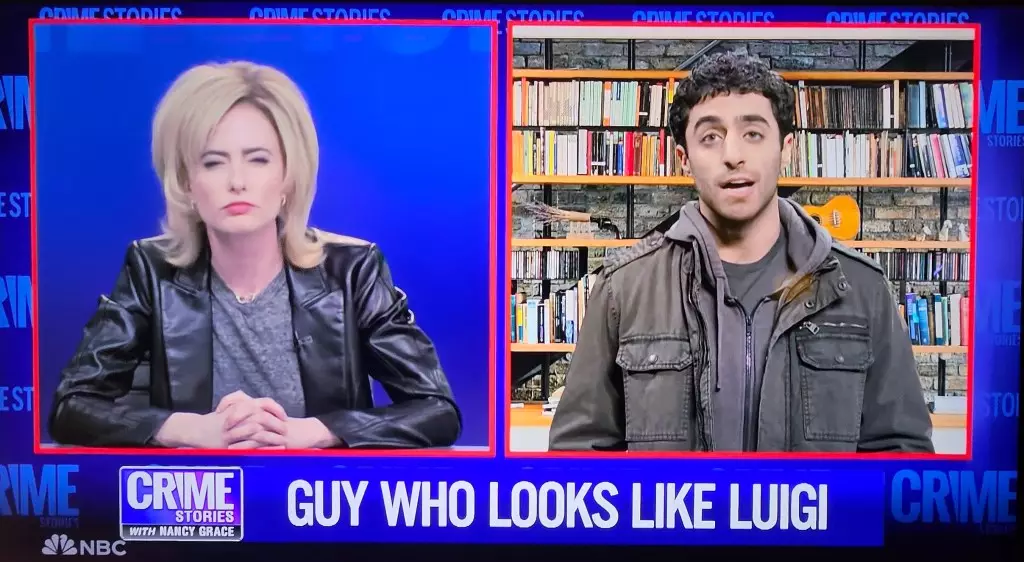Saturday Night Live (SNL) has long been a centerpiece of satirical comedy in American television. Over the years, the show has tackled countless topics, ranging from politics to pop culture, often using humor to diminish the severity of real-life issues. In its latest cold open, which featured the character Luigi Mangione, SNL attempted to encapsulate the zeitgeist by commenting on YouTube’s pervasive influence and the phenomena of public fascination with criminals. While the effort was ambitious, it invites a critical examination of the effectiveness and direction of SNL’s comedic approach.
Illuminating the Absurdity of Fame
The cold open showcased Sarah Sherman impersonating Nancy Grace, a figure who has garnered a reputation for sensationalizing crime stories in the media. Sherman’s performance aimed to satirize the trend of glorifying notorious criminals, using the example of “healthcare assassin” Luigi Mangione, who recently gained notoriety for committing a crime related to the CEO of UnitedHealthcare. In a telling moment, Sherman channeled Grace’s characteristic outrage, remarking on how the internet has transformed Mangione into an unwarranted sex symbol. This commentary raises an important point about society’s fascination with crime and the absurdity of glamorizing figures who engage in horrific acts.
However, this comedic critique quickly devolved into routine “sexy slayer” jokes. While the initial premise is promising, the execution falters as it leans too heavily on cliché humor. Sherman’s effective impersonation was overshadowed by repetitive jokes that detracted from the cold open’s sharpness. Herein lies a significant failure: the skit identified an important social commentary but ultimately failed to deliver it in a way that felt fresh or original. Humor is most impactful when it challenges audiences; instead, the sketch resorted to safe, familiar territory that pales in comparison to the biting satire and clever narratives that SNL is capable of delivering.
The cold open also touched on the alarming trend of how digital content consumption influences public discourse. The mention of interruptions by loud ads in YouTube channels humorously alludes to the chaos of online media but, again, the execution misses the mark. Rather than critically examining how modern media shapes perceptions of crime and celebrity, the skit settled into a surface-level critique. The novelty of referencing YouTube and social media platforms feels outdated; these topics have been explored extensively by countless other comedians, and relying on them in a tongue-in-cheek manner can come off as lazy rather than innovative.
Furthermore, the presence of familiar comedic tropes, such as the use of the ensemble cast as props behind Sherman, detracts from the depth of the commentary. While this approach may serve to provide comedic relief, it further dilutes the skit’s impact. When the humor begins to replicate self-obsessed behaviors, the skit loses sight of its intended message. Instead of effectively bridging the generational divide in media consumption, it merely reiterates tired formulas that have long characterized SNL’s lesser segments.
As SNL approaches its 50th anniversary, it carries a legacy brimming with groundbreaking moments in comedy. While the choice to feature well-loved figures like Chris Rock and Martin Short in the episodes surrounding this significant milestone is promising, the show must also confront its own evolution. There’s a pressing need for SNL to reclaim its voice and leverage the power of satire effectively in today’s media landscape, which is rife with new complexities and nuances.
While the cold open attempted to juggle contemporary issues of fame, crime, and the digital age, it ultimately fell short. To revive its cultural relevance, SNL needs to innovate its approach to humor, moving beyond light jabs at cultural phenomena and toward deeper, more provocative storytelling. By striving for originality and substance, it can continue to influence and shape the landscape of comedy and commentary for a new generation.
